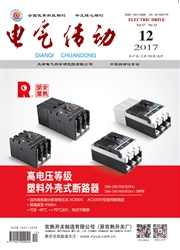

 中文摘要:
中文摘要:
针对目前很多型号的电动汽车电池管理系统(battery management system,BMS)与居民小区内的慢充充电桩不能正常通信的问题,依据确定性分析法,以倒序递推原则安排电动汽车的充电开始时间,研究了一种不采集电动汽车电池荷电状态(state of charge,SOC)来实现小区内电动汽车群(aggregator)有序充电的控制方法,并以小区配电网为例,采用蒙特卡洛方法模拟用户到达时间,对电动汽车在无序充电、总负荷最低时段充电和倒序递推时段充电3种充电模式下配电变压器的负载情况进行了仿真和分析,结果表明,在倒序递推时段充电能显著减小电网峰谷差率,不会产生新的负荷尖峰,适用于实际应用。
 英文摘要:
英文摘要:
In view of presently many types of electric vehicle battery management system (BMS) cannot communicate normally with AC charging piles in residential quarter, on the basis of deterministic analy- sis,it adopts reverse recursive principle strategy for EV aggregator in residential studied. The arrival time of EV user was to arrange the charging starting time. A coordinated charging quarter without collecting the state of charge (SOC) of EV is simulated by Monte Carlo method, and the load condition of dis- tribution transformer under three charging modes, namely the uncoordinated charging, the charging in the minimum total load period and the charging in the reverse recursive period, were simulated and analyzed. Research results show that the charging at the reverse recursive period can reduce peak-valley ratio sig- nally and cannot cause new peak load. Thus it is suitable for practical application.
 同期刊论文项目
同期刊论文项目
 同项目期刊论文
同项目期刊论文
 期刊信息
期刊信息
